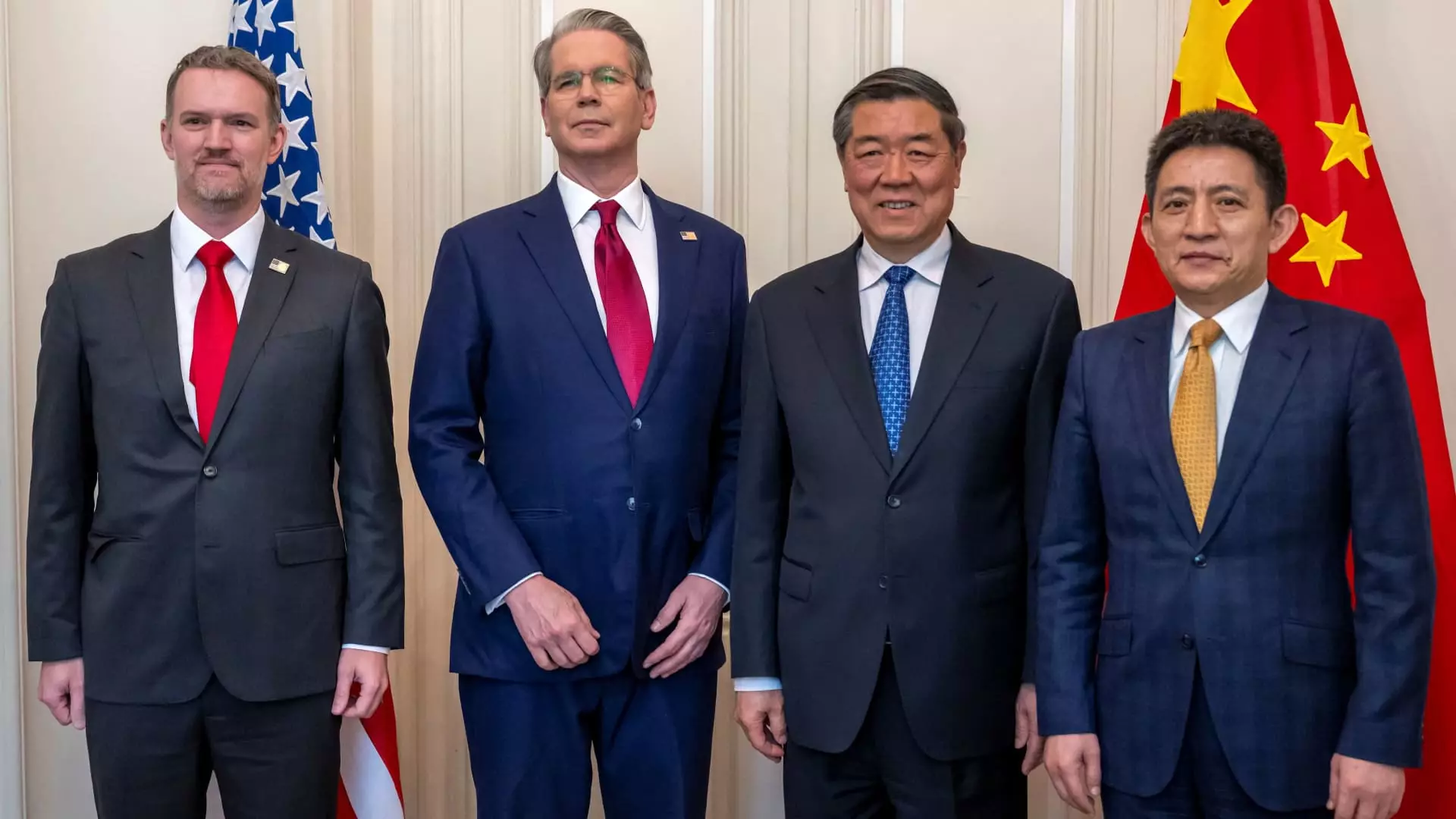The recent meeting of U.S. trade officials with their Chinese counterparts would have been a revolutionary moment in history had it not been overshadowed by underlying tensions that have defined the relationship between the world’s two largest economies for years. In London, Treasury Secretary Scott Bessent and Commerce Secretary Howard Lutnick, flanked by Trade Representative Jamieson Greer, sit across the table from China’s Vice Premier He Lifeng. While this diplomatic pow-wow aims to quench escalating hostilities, skepticism looms large; the trade relationship between the U.S. and China has devolved into a high-stakes game where each side is unwilling to back down.
The backdrop of this meeting reflects a narrative that is all too familiar—one of tariffs, accusations, and unyielding demands. The momentous announcement from the Trump administration in April about imposing exorbitant tariffs on Chinese products sent shockwaves across the global economy. Following that, a bitter tit-for-tat ensued, with Beijing retaliating in kind. The Geneva agreement to halt some of these trade hostilities for 90 days came as a glimmer of hope, yet it is evident that both nations have since maneuvered to sabotage any goodwill established.
Escalating Tensions: More Than Just Trade
Business scholars and analysts have articulated the dire implications of this trade dispute extending beyond simple economic transactions. Rebecca Harding, CEO of the Centre for Economic Security, aptly notes that the stakes are considerably higher. The central narrative is not solely about trade tariffs and international commerce—it’s a clash that digs deep into national security, tech supremacy, and digital warfare. The modern-day battlefield could very well hinge on data control and the capacity for technological innovation, drawing battle lines that neither nation is capable of crossing without significant repercussions.
China’s aggressive expansion in munitions production, juxtaposed with the U.S.’s tightening grip on technological advancements, exemplifies the existential stakes at play. This ordeal is transforming global paradigms and reshaping how economies function in a rapidly digitalizing world. As Harding suggests, the notion of “trade” has transformed; we are witnessing a paradigm shift towards a new economic dominion where digital prowess and military might define global hierarchies.
Expectations vs. Reality: A Candid Assessment
Amidst the hope that the London talks might garner favorable outcomes, established economists cast a wary eye towards the proceedings. Zhiwei Zhang, the chief economist at Pinpoint Asset Management, succinctly encapsulates the prevailing sentiment by voicing skepticism about immediate breakthroughs. With both sides entrenched in specific grievances and retaliatory measures, the prospects for comprehensive agreements seem dim.
While there might be incremental advancements concerning sector-specific issues—like a potential thaw in discussions around rare earths—one wonders if a stopgap solution is anything more than mere window dressing. The core issues remain unresolved, hanging in the balance like a sword of Damocles poised to drop at any moment. The fact that these negotiations will likely yield no substantial agreements anytime soon articulates the painful truth: the optimism surrounding trade discussions is often misplaced and overly naïve.
The Political Undertones of Trade Negotiations
The political dimensions of these discussions are as significant as their economic implications. The ongoing struggle between the U.S. and China reaffirms a harsher reality: aggressiveness in trade is often interlaced with nationalistic sentiment. In moments of geopolitical strife, trade agreements can become bargaining chips in larger political games, and the need for diplomacy is often overshadowed by brinkmanship.
This situation invites a critical reflection: Are these talks more of a public relations exercise to demonstrate efforts at diplomacy rather than genuine attempts to resolve systemic issues? With looming elections and ongoing political rhetoric in both countries, the potential for obstructionism and partisanship cannot be ignored.
As U.S.-China trade relations enter a new chapter fraught with daunting challenges, the necessity for sincere dialogue rooted in collaboration rather than confrontation is paramount. The world is watching, but the reality is that the outcome of these negotiations may well define the trajectory of international relations for years to come.

Leave a Reply